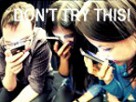 From GovKnow's website promoting the event: Currently, there are 11 million people in the UK that are disabled. This means that 1 in 5 adults have either serious physical problems, chronic pain or have trouble communicating with others unaided. As we move towards an ageing population, where people are living longer, it is estimated that by the end of our lives almost half of us will be disabled. With the issues above in mind, GovKnow are proud to present...a forum for discussion and debate on how best to support disabled people to live fulfilling lives, to reach their full potential. Read more here from GovKnow.
From GovKnow's website promoting the event: Currently, there are 11 million people in the UK that are disabled. This means that 1 in 5 adults have either serious physical problems, chronic pain or have trouble communicating with others unaided. As we move towards an ageing population, where people are living longer, it is estimated that by the end of our lives almost half of us will be disabled. With the issues above in mind, GovKnow are proud to present...a forum for discussion and debate on how best to support disabled people to live fulfilling lives, to reach their full potential. Read more here from GovKnow.
Bob Williams-Findlay of DPAC condemned the event as follows (extracts): The majority of disabled people, whether service users or not, are unlikely to know that this event is taking place. The fact it is 'about them' rather than an event seeking to involve them perhaps gives us the clearest message yet regarding the utter disregard the Coalition government has for the rights of disabled people. Sadly, with the shadow spokesperson on disability issues also participating in this patronising farce, it would seem we have a tri-partisan approach to displaying disabled people and service provision in the brave new 'market place'. Every aspect of this National Disabilities Conference stink(s) to high heaven – ideologically and politically – it adds insult to injury by stealing the language and concepts of the Disabled People's Movement and transforming them into tools that will assist in the dismantling of the Welfare State.
How can there be a discussion on independent living against a backdrop of the closure of the Independent Living Fund? How can people listen to a presentation on Disability Hate Crime and not round upon the role played by the Department of Works and Pensions in feeding material to fuel the 'scroungers' agenda?
This Conference employs patronage and an oppressive methodology. The United Nations' Convention on the Rights of Disabled People advocates self-determination – nothing about us without us – yet, the blurb for the NDC is clearly at odds with the methodology that underpins the Convention because it portrays disabled people as passive receivers of 'care'.
It is vital to see this conference as yet another ideological and political attack on disabled people's rights and welfare. We cannot afford to how the NDC to go ahead unchallenged. Read the full piece here.
Response to DPAC Coverage of the National Disabilities Conference (Sent to TAC Bulletin 17/5/13): GovKnow is a non-partisan private organisation that aims to provide platforms for balanced discussions and debates about key public policy issues. This conference has been put together to support disabled people and their families and to highlight their concerns. Through thoughtful and meaningful conversations we are hoping to promote and positively influence their rights and independence. We welcome the views of disabled people and service users, currently with input from organisations including Disability Rights UK, Scope, Breakthrough UK, the Council for Disabled Children and the RNIB. Concession subscription rates are available for charities, smaller organisations and individuals. We have also been working closely with sector groups to ensure the inclusion of all disabled people and campaigners in the conference with all efforts made to accommodate them on a complimentary (sic) basis. We have contacted and extended an invitation to the author as a stakeholder but it has been declined.
Editorial comment: DPAC will surely note the phrase, 'We have also been working...to accommodate them on a complimentary basis.' in the statement above (my underlinings). There is plenty of time to find a meeting ground between GovKnow and the people they are discussing at the conference. TAC Bulletin will give space for news of any significant changes.


 The IARC Monograph Working Group (IARC = International Agency for Research on Cancer) discussed the possibility that these exposures might induce long
The IARC Monograph Working Group (IARC = International Agency for Research on Cancer) discussed the possibility that these exposures might induce long From GovKnow's website promoting the event: Currently, there are 11 million people in the UK that are disabled. This means that 1 in 5 adults have either serious physical problems, chronic pain or have trouble communicating with others unaided. As we move towards an ageing population, where people are living longer, it is estimated that by the end of our lives almost half of us will be disabled. With the issues above in mind, GovKnow are proud to present...a forum for discussion and debate on how best to support disabled people to live fulfilling lives, to reach their full potential. Read more
From GovKnow's website promoting the event: Currently, there are 11 million people in the UK that are disabled. This means that 1 in 5 adults have either serious physical problems, chronic pain or have trouble communicating with others unaided. As we move towards an ageing population, where people are living longer, it is estimated that by the end of our lives almost half of us will be disabled. With the issues above in mind, GovKnow are proud to present...a forum for discussion and debate on how best to support disabled people to live fulfilling lives, to reach their full potential. Read more 